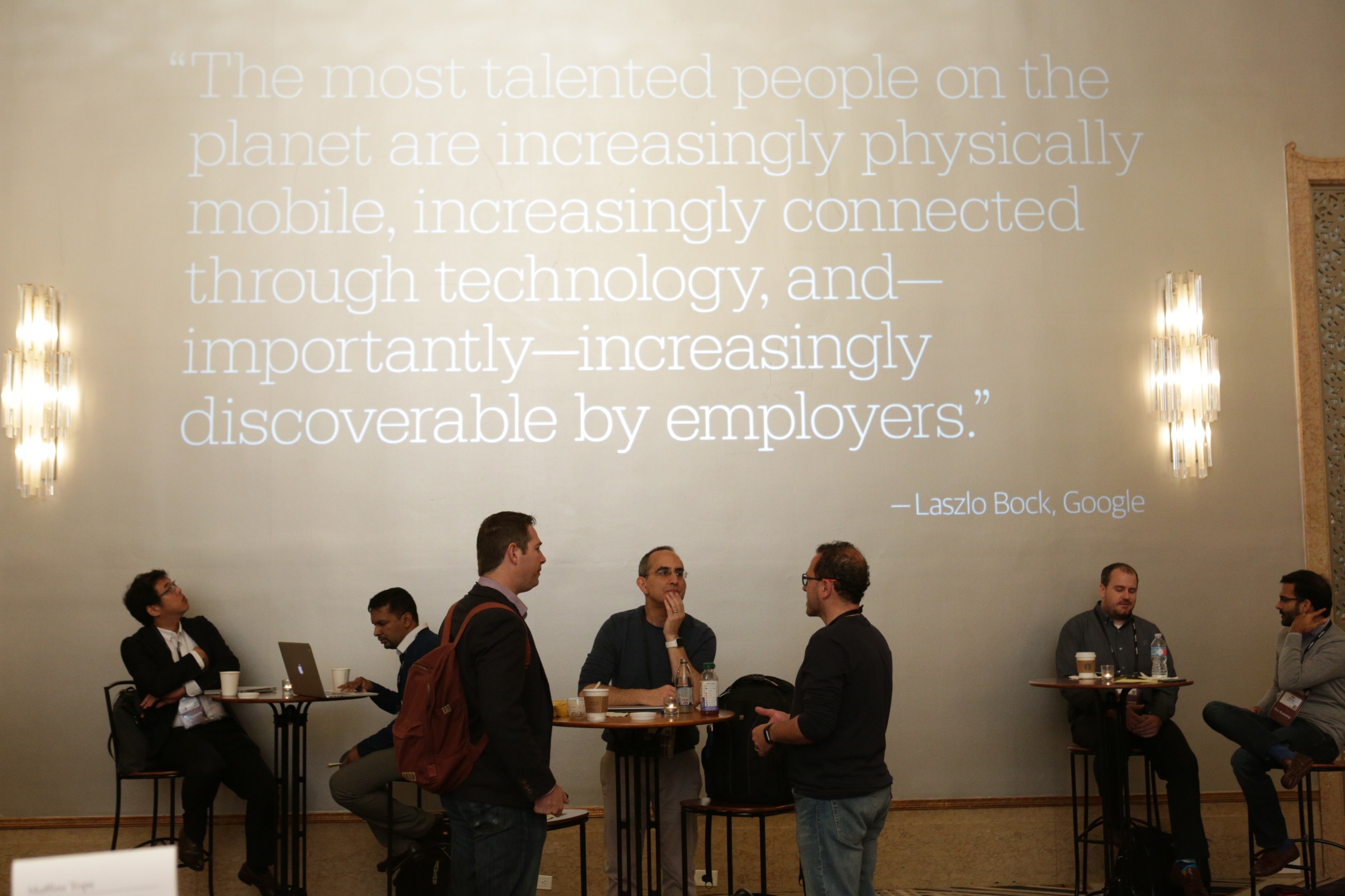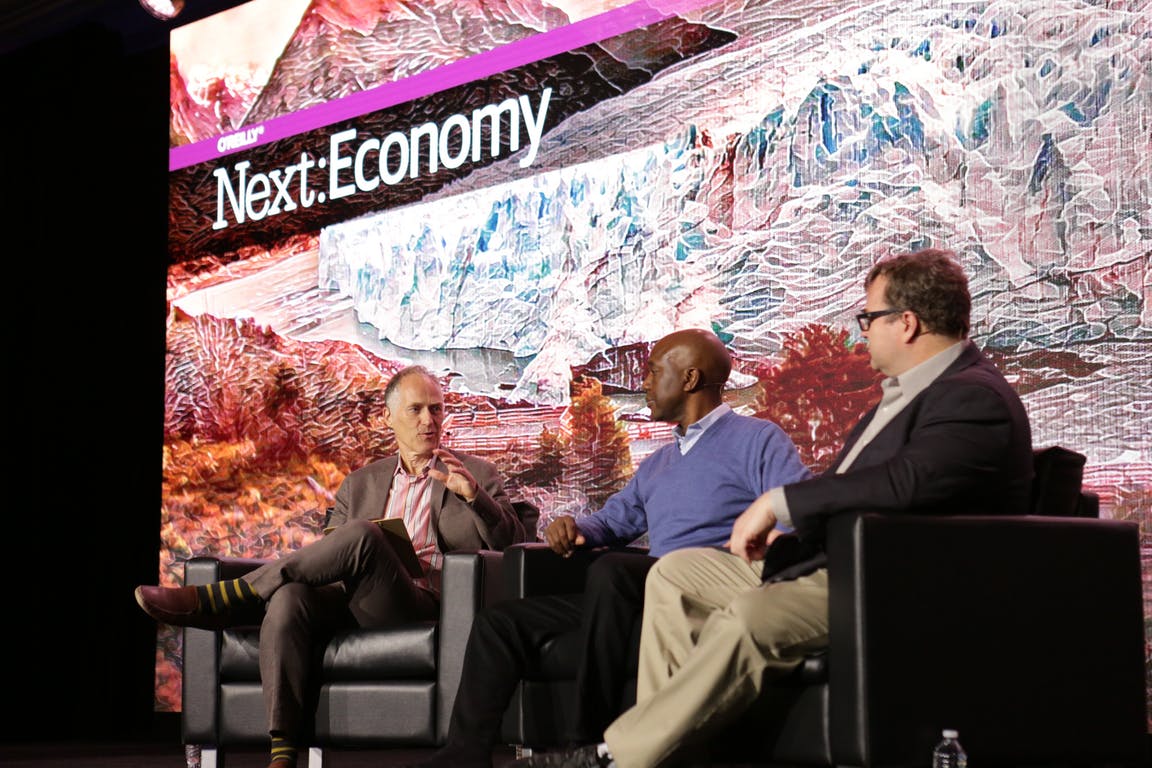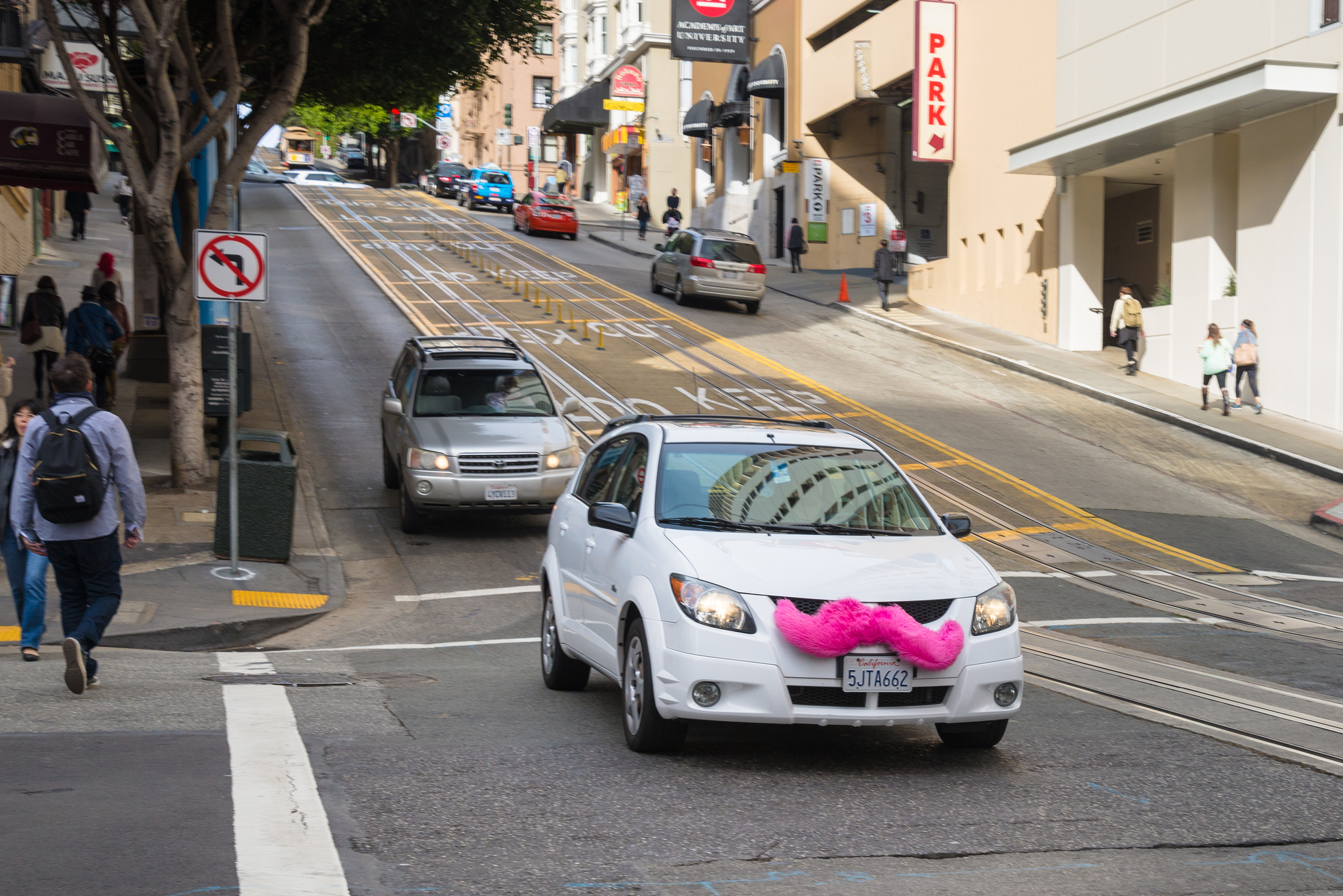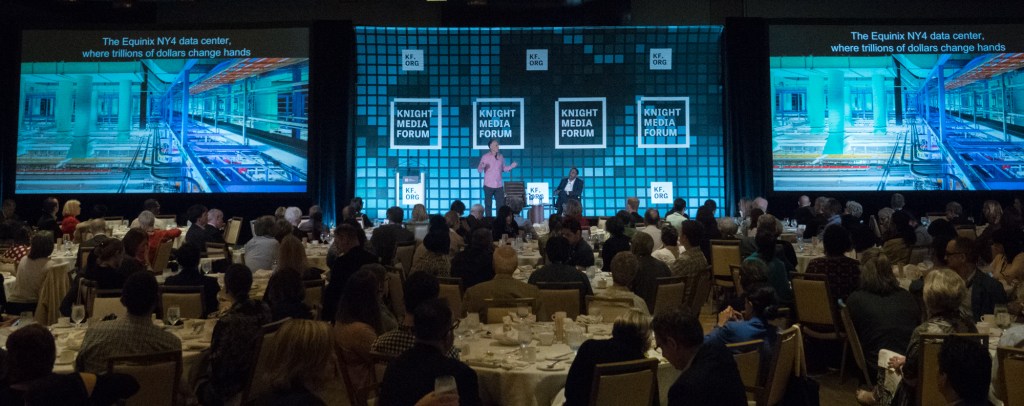
Social good in the sharing economy: Summit explores the values of our tech future
Caroline Jack, Ph.D., is a media scholar and researcher with Data & Society Research Institute, a winner of the Knight News Challenge on Data. She recently attended the O’Reilly Next:Economy Summit, which was sponsored by Knight Foundation.
Economy talk is heady stuff. When we talk about the economy, we’re talking about who we believe we are, who we aspire to be, and who we fear we might become.
This holds true whether we’re referring to a national economy, or to a relatively narrow band of production, labor and consumption that cuts across national lines (as with the “sharing” or “gig” economy). Talk about economies is talk about business, certainly, and about the role the state plays in regulating business and providing a social safety net. But that’s not all it is.
Talk about economies is also a way of working out a moral vision for the present and the future. Will our reality be one where wealth is distributed broadly, or one where disproportionate prosperity is limited to a fortunate few? Can Silicon Valley and other tech centers help to design systems where rising levels of human welfare accompany rising levels of automation?
Tim O’Reilly believes it can. O’Reilly Next:Economy brings together executives, entrepreneurs, scholars, journalists and organizers to grapple with the economic implications of widespread technological change. As O’Reilly noted at the summit’s debut in 2015, this conference is unlike other O’Reilly offerings: It is an open-ended forum for making sense of economic changes and charting a course to a future where “business can be a force for good in the world,” rather than a hub for learning how to leverage best practices and technical skills across domains.

The stakes are high. Many of the speakers at this year’s Next:Economy referred to a January 2016 World Economic Forum report warning that advances in robotics, artificial intelligence, nanotechnology and biotechnology amount to a “Fourth Industrial Revolution” that will cause the world’s developed economies to shed 5.1 million jobs by 2020. Silicon Valley, in other words, may be driving epochal social change in the near future.
O’Reilly and many of the Next:Economy speakers highlighted a factor that complicates this vision: Our commercial and financial systems don’t do a good job of incorporating crucial social factors such as worker satisfaction, mutual respect and sense of purpose.
A system optimized for efficiency and maximizing profits has incentivized innovation, but the most recent forms of on-demand commerce have also subjected workers to unprecedented surveillance. Further, many platforms for “gig” work put the worker at a disadvantage by allowing them more limited access to information that is readily available to employers and intermediaries. And while work may be more flexible, it is more precarious as well.
The conventional wisdom is that retraining and other forms of skills-building will salve the pain of millions of jobs lost. World Economic Forum Executive Chairman Klaus Schwab takes this line, as does U.S. Secretary of Commerce (and Next:Economy speaker) Penny Pritzker. “Skilling up” millions of people will need to be done carefully, with an eye to the sectors poised for growth. However, many of those sectors require only limited formal training—personal care and home health, for example, as Institute for New Economic Thinking Chairman Adair Turner points out.
In the next economy, the most important skills may be difficult to quantify or commodify—but optimizing for human welfare demands that the people driving the innovation economy take them seriously. Care work requires workers to build trust and practice kindness. It is “emotional labor” that demands skills such as calmness, empathy and interpersonal creativity. Given this outlook, the greatest victory of our tech industry could be in turning away from systems that incentivize efficiency and profit and toward designing systems that optimize workers’ and consumers’ dignity, sustenance and welfare.
Follow Caroline Jack on Twitter @cjack.
-
Technology / Press Release
-
Communities / Article
- Thinking Forward and the Gig EconomyExternal Content / Website
Recent Content
-
Artsarticle ·
-
Artsarticle ·
-
Communitiesarticle ·



